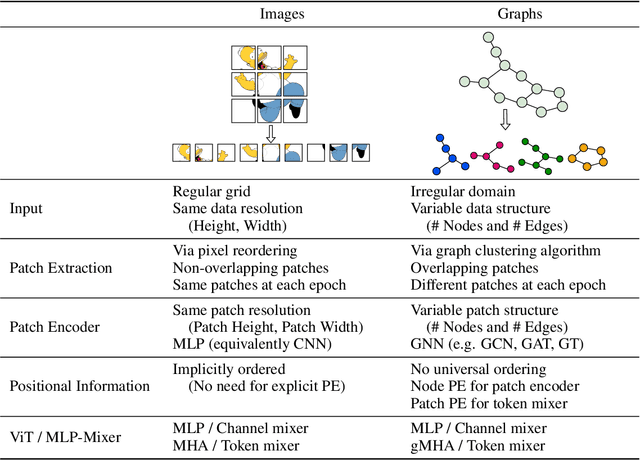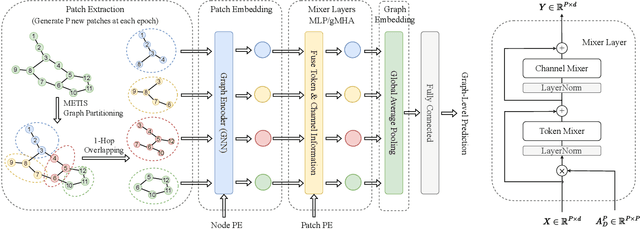Adam Perold
A Generalization of ViT/MLP-Mixer to Graphs
Dec 27, 2022



Abstract:Graph Neural Networks (GNNs) have shown great potential in the field of graph representation learning. Standard GNNs define a local message-passing mechanism which propagates information over the whole graph domain by stacking multiple layers. This paradigm suffers from two major limitations, over-squashing and poor long-range dependencies, that can be solved using global attention but significantly increases the computational cost to quadratic complexity. In this work, we propose an alternative approach to overcome these structural limitations by leveraging the ViT/MLP-Mixer architectures introduced in computer vision. We introduce a new class of GNNs, called Graph MLP-Mixer, that holds three key properties. First, they capture long-range dependency and mitigate the issue of over-squashing as demonstrated on the Long Range Graph Benchmark (LRGB) and the TreeNeighbourMatch datasets. Second, they offer better speed and memory efficiency with a complexity linear to the number of nodes and edges, surpassing the related Graph Transformer and expressive GNN models. Third, they show high expressivity in terms of graph isomorphism as they can distinguish at least 3-WL non-isomorphic graphs. We test our architecture on 4 simulated datasets and 7 real-world benchmarks, and show highly competitive results on all of them.
 Add to Chrome
Add to Chrome Add to Firefox
Add to Firefox Add to Edge
Add to Edge